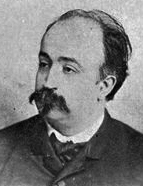

His work involved intense efforts in the field of political economy, using the material to incorporate the received ideas of Friedrich List, of Ricardianism, and the “socialist systems”, particularly those of Karl Marx, as well as the tradition of the so-called “historical school” (cf. “Origens do Socialismo”, 1874-75, Teoria Geral da Emigração… 1878 and Princípios de Economia Política, 1997). His work suggests, in some aspects, an apparent eclecticism, which however reveals a very conscious effort to produce his own thinking, open to different influences, but endowed with a high level of internal coherence. His discussion of economic theory is above all inseparable from a recognition of the component of “should be”, of “ethics”, or a moral objective necessarily associated with practical economics. Since Laranjo’s political economy is clearly inscribed in his juridical thinking, especially as regards public law, his work in fact constitutes a form of “economic institutionalism”, within which there stand out his explicit inferences in defence of cooperatativism and state economic intervention.
Given the national circumstances, Laranjo believed that the processes of industrialization should be supported by the public authorities, in the first place through protective tariffs. In this regard he evidently subscribed to the views of the social economic school, or “national economy” of List and Carey (Teoria Geral da Emigração… 1878). From this current he took not only industrial protectionism and the multiple role of the nation state, but also the notion that concern for productive forces took precedence over that for the products themselves, as well as the tendency to think of economic facts in terms of reinforcing the whole. These ideas converge with the ethical aspect, characteristic of his thinking: it is completely illegitimate, he argues, to conclude from the absence of industries in the country that it could not, or should not, have them. Not only should there be, but in reality there could be, and there tended to be, precisely by virtue of the conscious advance to the good that men are capable of.
